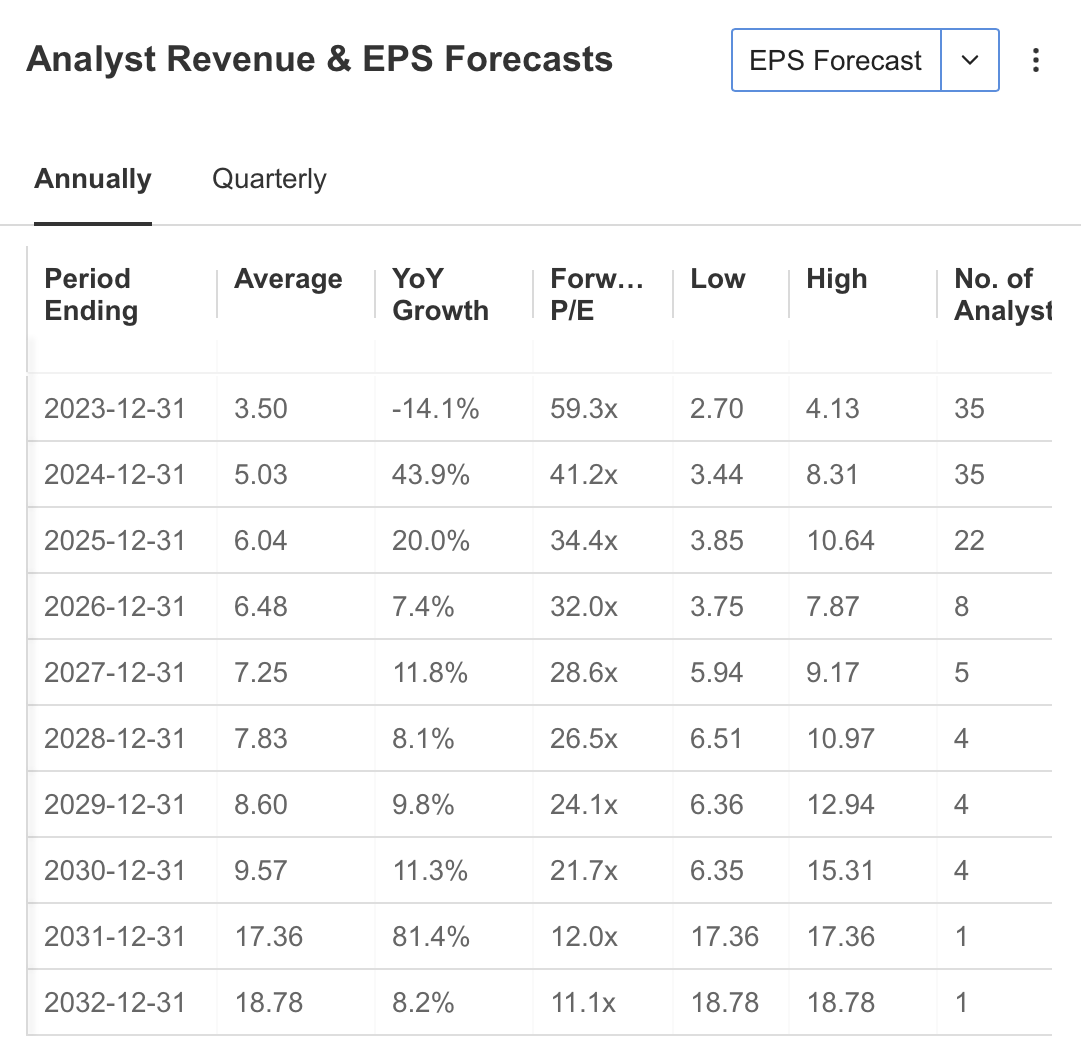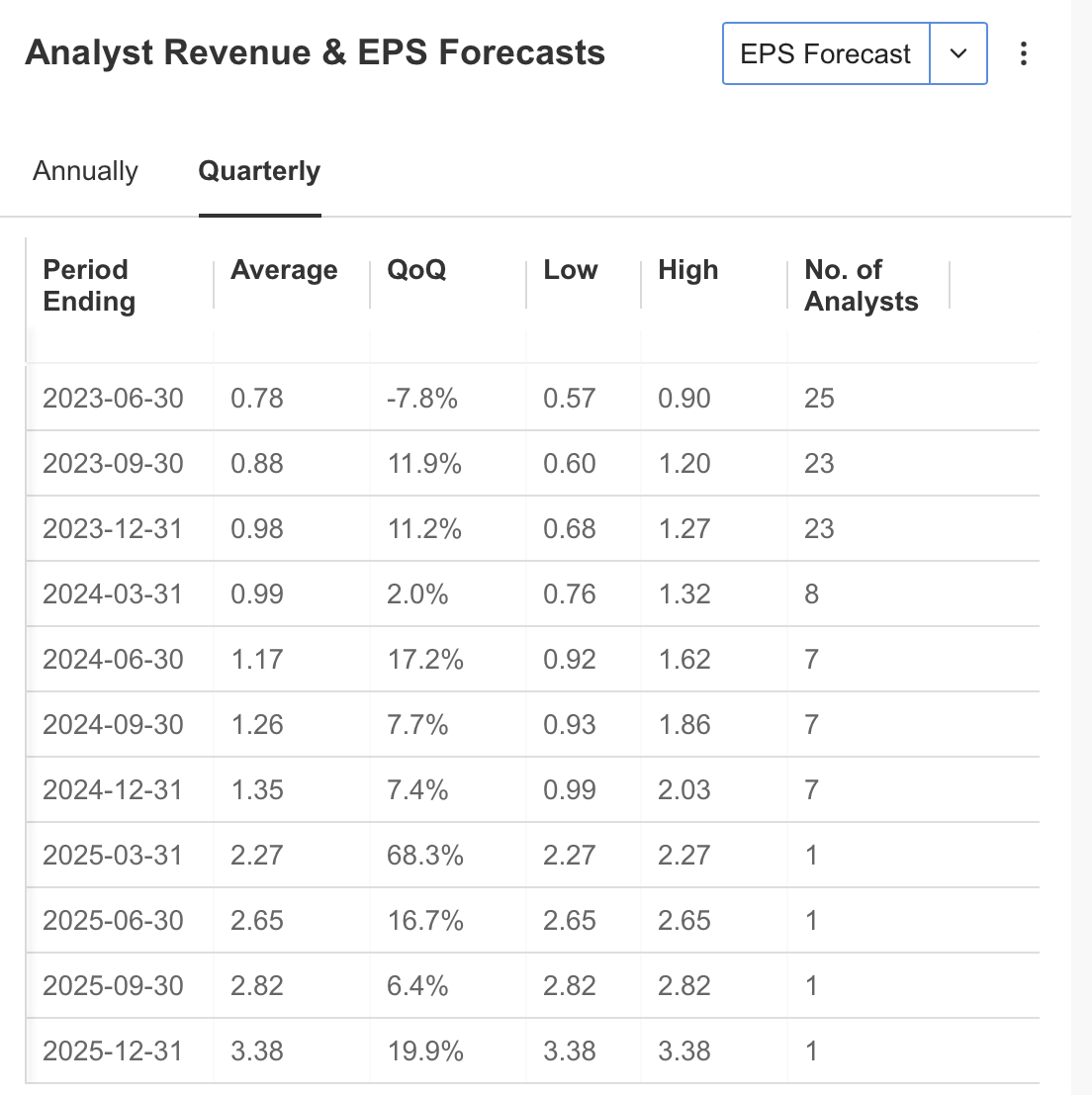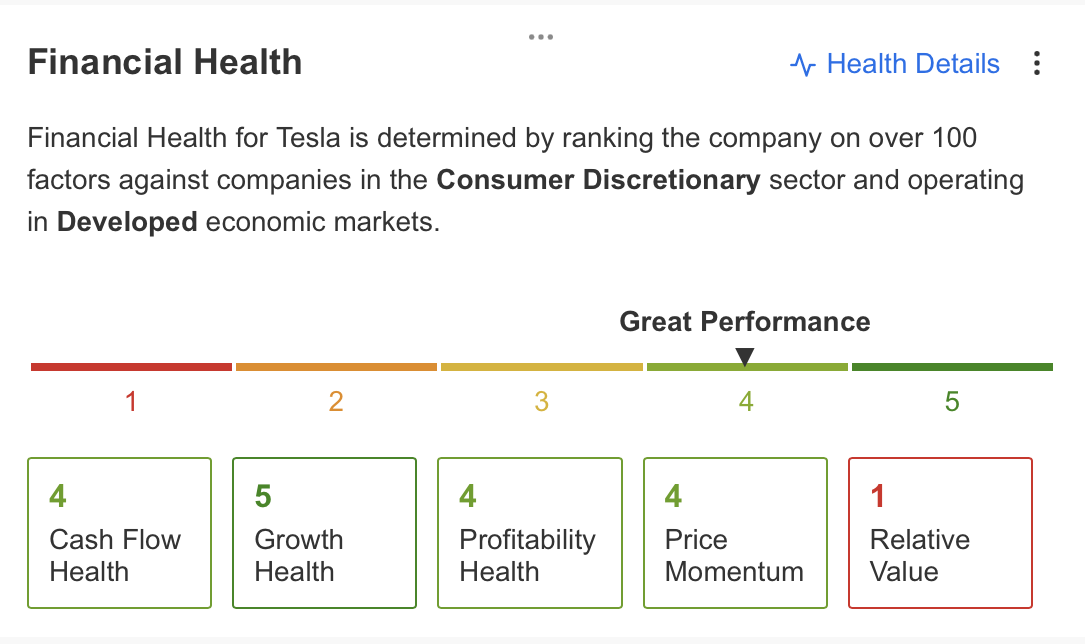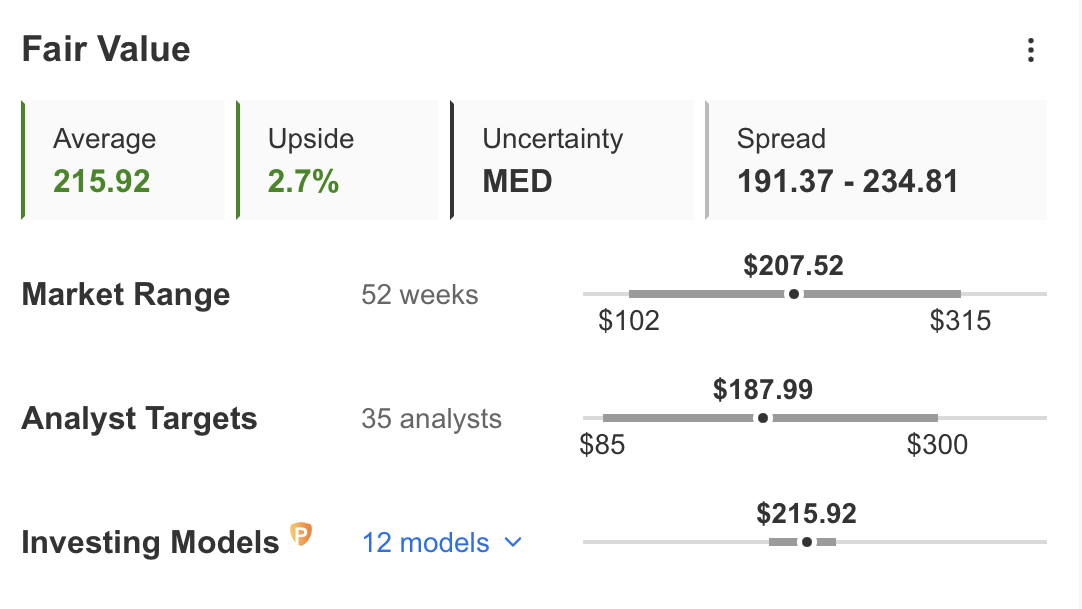- Tesla received downgrades from analysts post its recent earnings.
- In this piece, we will use InvestingPro to see if the company is a buy at current levels.
- You can do the same for any stock, sign up and start picking stocks today!
Tesla (NASDAQ:TSLA), the electric vehicle manufacturer, reported its first quarter earnings for 2023 in April, showcasing the impact of its aggressive pricing strategy and remarkable delivery numbers.
With a production of 440,808 vehicles and 422,875 vehicle deliveries, Tesla achieved a new quarterly record.
In terms of financials, Tesla announced revenues of $23.32 billion in Q1, slightly below the expectations on the InvestingPro platform by $26 million.
Although Q1 revenue declined compared to Q4 2022, it still grew by an impressive 24.4% compared to the same period last year.
Looking ahead to the Q2 results, set to be announced on July 24, 16 analysts on InvestingPro have revised their earnings expectations downward.
The average forecast for Q2 revenue stands at $24.27 billion. Analysts anticipate continued revenue growth for future periods, projecting Tesla's annual revenue to reach $100.2 billion by the end of 2023, representing a 23% increase.
So, after the stock received another downgrade, is it still worth buying?
Tesla's Key Financial Metrics

Source: InvestingPro
Tesla's first-quarter earnings report revealed earnings per share of $0.85, aligning with the data from InvestingPro. However, for the upcoming Q2 results, the earnings per share forecast has been revised downward to $0.78.
Despite this adjustment for the first half of the year, analysts anticipate a positive trajectory for Tesla's profit per share in the second half.
Projections indicate that Tesla's profit per share is expected to increase to $0.88 in Q3 and $0.98 in Q4, representing quarterly growth of over 10%. These estimates point to a promising outlook for the company's profitability in 2023.
Source: InvestingPro
Despite an annual increase in revenue, the EV manufacturer experienced a decline in gross profit by approximately 18% compared to the previous year as costs escalated.
Additionally, the gross profit contracted by about 22.5% compared to the last quarter of 2022, resulting in a decrease in gross margin from 29.1% to 19.3% year-on-year.
In its statement regarding the first quarter results, the company acknowledged applying discounts to various vehicle models, managing the decline in operating margins.
The company aims to reduce production costs through improved production efficiency and more cost-effective logistics in its new factories.
Notably, significant discounts were offered on all vehicle models, particularly the Model 3 and Model Y, as part of a destocking policy.
This strategic move aimed to enhance attractiveness amidst economic uncertainties, intensified competition, and the upcoming launch of a redesigned Model 3 in the U.S.
Tesla's CEO, Elon Musk, expressed concerns about the uncertain macroeconomic outlook in his statement following the earnings report.
He predicted a prolonged economic storm for the next 12 months and emphasized the substantial impact of macroeconomic factors on consumers' vehicle purchase decisions.
Musk also raised concerns about the Federal Reserve's interest rate hike policy, noting its influence in driving up vehicle prices with each rate increase.
Consequently, Tesla's operating profit for the first quarter declined from $3.6 billion to $2.7 billion compared to the same period last year. The company's net profit was announced as $2.51 billion, reflecting a year-on-year decrease of 24%. 
Source: InvestingPro
Tesla's cash and debt balance reveals an increase in cash and cash equivalents, along with short-term investments, from $18 billion to $22.4 billion.
Despite the positive cash position, free cash flow declined significantly, dropping from $2.2 billion to $440 million over the past year.

Source: InvestingPro
Based on the current data, Tesla exhibits strong financial health on the InvestingPro platform, scoring 4 out of 5. The company demonstrates notable growth potential, although its relative value appears to be low.
Source: InvestingPro
InvestingPro calculates the fair value of Tesla shares at $215.92, indicating that buying at $207 aligns with the stock's fair value. However, 35 analysts estimate the average fair price of the stock at $188, which is lower than InvestingPro's models.
In summary, Tesla, a key player in the electric vehicle industry, offers investors high return potential based on its positive cash-debt balance and consistent growth in profit per share.
However, nearly 20 analysts have downwardly revised their earnings forecasts for the company, highlighting short-term risks. Additionally, Tesla's high price-to-earnings ratio, absence of dividend payments, and the stock's volatility are notable negatives.
InvestingPro tools assist savvy investors in analyzing stocks, as we did in this article. By combining Wall Street analyst insights with comprehensive valuation models, investors can make informed decisions while maximizing their returns.
Start your InvestingPro free 7-day trial now!
Disclaimer: This article was written for informational purposes only; it does not constitute a solicitation, offer, advice, counsel, or recommendation to invest, nor is it intended to encourage the purchase of assets in any way.

